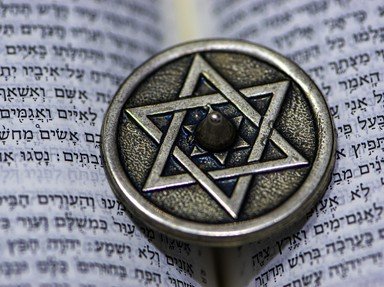2. At what age is a Jewish person when he or she first receives a blessing asking for a good marriage?
From Quiz My Big, Happy Jewish Wedding
Answer:
As a tiny infant
In Jewish tradition, a baby boy is circumcised when he is eight days old, assuming he is healthy. After the procedure, the guests say, "Just as he has entered into the Covenant, so may he enter into Torah, marriage and good deeds". Similarly, at the baby-naming of an infant girl, which is usually within the first week or so following her birth, the parents are told, "May your merit bring her up into Torah, marriage and good deeds". In other words, even before the tiny infant can turn over, the family is thinking about a future spouse!






 Quick Question
Quick Question